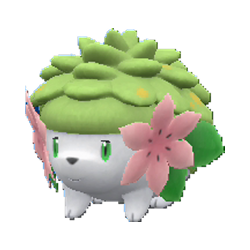More actions
The Ātanārta were a people who came to Laredhidan as part of the Great Migration. Little is known of their origins, though the legendry of the Selaminæans states that they were not from the Old Homeland. They are more commonly known as the Langaher, that name meaning the 'Long Heads' or 'Tall Heads', in reference to their noblemen having elongated skulls from binding their heads as infants. The meaning behind the name of 'Ātanārta' is variously given as 'Human', 'Sacrificer', or 'Speech-maker'. According to the Grey Book, the Ātanārta were exiled from their homeland of 'Antamé' for having supported a usurper against that land's god-king.
The majority of the Ātanārta chose to settle elsewhere in the world,
Religion
Ātanārta worshiped Yāthag, the Demon-Elephant, as the greatest of all gods. They brought with them many strange gods and goddesses, many of whom were like animals, and most of whom were demoniacal in nature. These demoniac gods exulted the Ātanārta to sacrifice Men, which they did by removing the ribs and exposing the victim's organs to the world. They then left the corpses on specially erected pillars made of clay, stone, or wood, to be consumed by the carrion birds.
A god named Yōtagāsun was worshiped as the brother of Yāthag, though little is known of him. Both gods share a wife named Nāta, who is said to be 'double-bodied' and is depicted as two female bodies linked by a cord. Through this union were born the twins Yithunāg and Yothunāg, who each had a separate father. Another god whose name survives to this day is Ulyotha, who was the father of Yāthag and Yōtagāsun and who was deposed and ritually consumed by his sons. His wife, Ilyta, was split in half and made into Nāta.
Worship of these gods survived the Ātanārta in Laredhidan. Yāthag is worshiped in some parts of Anuromé as Yethón, and it is by this name, or variations of that name, that he is known throughout Selaminæ. The twins Yithunāg and Yothunāg are remembered as Athó and Oth, who taught Mankind how to ride elephants. The gods of the Ātanārta were always distant to their worshipers, and have grown more so after the Ātanārta died out.
Culture
Though every culture of Man in ancient times was alien in its own right, the Ātanārta - much like the Tsūo-tsūo - were considered nonhuman and though they were permitted to join the Great Migration, Men naturally distrusted them. Unlike the Tsūo-tsūo, this belief that the Ātanārta were not Human was most certainly false, as they intermarried with Men and gave them offspring who looked no different from how a Man ought to look.
Ātanārta were said to be 'brutal', 'savage', and 'ferocious', qualities that were spoken of with praised in the Grey Book, as the Selæ considered these traits to be virtuous. They famously bound the heads of their nobles and of the sons of great warriors so as to emulate Yōtagāsun, the 'Tall-headed God', whose head was elongated. It was because of this practice that other Men considered them nonhuman, and it seems to have been wholly unheard of in the Old Homeland.
